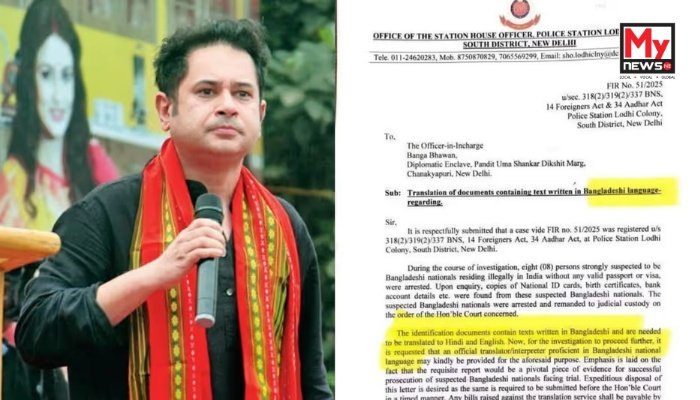Tipra Motha Leader Pradyot Debbarma Alarmed by Delhi Police’s ‘Bangladeshi Language’ Remark, Urges Respect for All Indian Tongues
Agartala, Tripura — In a fiery Facebook post that has reverberated across the region, Tipra Motha founder and royal scion Pradyot Kishore Manikya Debbarma has voiced his profound concern over a disturbing report alleging that Delhi Police referred to Bengali as a “Bangladeshi language.” The statement, if true, has struck a raw nerve with the seasoned politician, who sees it as a dangerous precedent and an affront to India’s rich linguistic tapestry.
Taking to social media on Monday, Debbarma minced no words in his condemnation of the alleged comment. “This is deeply concerning,” he wrote, highlighting the slippery slope such a mindset represents. He further cautioned, “Today it is Bengali, tomorrow it can be any other language.” The Tipra Motha chief emphatically debunked the notion of a ‘Bangladeshi language,’ reminding everyone that Bangladesh is a country, not a language. He also pointed out a crucial historical fact often overlooked: our own national anthem, ‘Jana Gana Mana,’ was originally penned in Bengali by the legendary Rabindranath Tagore, a testament to the language’s deep-rooted Indian identity.
While Pradyot has been a staunch advocate for tightening borders and curbing illegal immigration in Tripura and the wider Northeast, he was quick to warn that such insensitive actions by state agencies inadvertently fuel extremist narratives. He cautioned that such remarks only serve to create a breeding ground for individuals and groups who seek to damage the country’s image on the international stage, naming individuals like Md Yunus as beneficiaries of such rhetoric.
The leader, whose political journey is intertwined with the cause of indigenous rights and identity in Tripura, stressed the importance of linguistic diversity as a cornerstone of national unity. He reiterated his unwavering opposition to the imposition of any single language, calling for mutual respect and appreciation for all of India’s languages. “As Indians, we must uphold respect for all our languages,” he urged, listing a diverse array of tongues, from the indigenous Kokborok and Bodo to Bengali, Tamil, Assamese, Mizo, and even Hindi and English, underscoring that each holds a special place in the nation’s heart.
Read More: Devotees in a Spiritual Trance as Guru Rinpoche’s Statue Parades Through Gangtok

